|
BACK TO DIRECTORY
PREVIOUS /
NEXT

Introduction
History
Aircraft/Inventory
Units/Squadrons
Airbases/Stations
> Pilot Training
Picture Gallery
Video Gallery
Related Links
Related News
|
|
|
RNLAF Pilot Training
Pilot Selection
After application the candidates enter an extensive selection program.
The program initially consists of a number of psychological and medical
tests, performed at the Aeromedical Institute at Soesterberg now known as
Centrum voor Mens en Luchtvaart (Centrum for Man and Aviation). When
succesfully passed these the candidate will undergo a number of specialised
medical tests at the Central Military Hospital in Utrecht followed by a
physical test at Soesterberg again. The candidate will then be screened for
flying fear/sickness and basic talent for flying in a Practical Flyer Selection
program flying the Slingsby Firefly at airfield Seppe near Etten-Leur.
Military Training
When passing the last tests and being accepted into service, the candidate
will start general military and officers training course at the
Koninklijke Militaire Academy(KMA - Royal Military Academy) in Breda.
They will learn military skills, weapons training, teamwork and discipline.
Apart from military education and practical knowledge, the course will also
consist of physical training. The officers course will focus on leadership,
increasing group morale, adaptability, and self confidence.
Basic Flying Course
When the candidate has completed the course he will go to the Elementaire
Militaire Vliegers Opleiding (EMVO - Basic Military Flying Course) at Woensdrecht AB,
where he will learn the basics of flying in the Pilatus PC-7 turboprop trainer.
During the training the candidates will be evaluated if they are more suitable
for the F-16 or helicopter. After 25 weeks the aspirant pilot will go abroad
for advanced training.
Fighter Pilot (F-16)
The aspirants selected for the F-16 will go to Sheppard AFB in Texas, United States for the
Euro NATO Joint Jet Pilot Training(ENJJPT). They will commence Primary Training on the Cessna
T-37 Jettrainer. After 30 weeks, the pilots will enter the 25 week advanced jet training program
on the T-38 Talon trainer. After completing this course the pilot will receive its military wings.
Still at Sheppard AFB the pilot now follows the Inroduction to Fighter Fundamentals (IFF) program
flying the AT-38B Combat Talon.
Formerly, the training continued with the Air National Guard
Basic Tactical Training Course based at Tucson AFB in Arizona, USA. The pilot would convert
to the F-16 becoming a fully qualified F-16 pilot in a 25 week program before returning to the Netherlands.
The new F-16 pilot then had to complete the 16 week Theatre Qualification Training at Twenthe AB. Theatre
Qualification is neccessary because of the difference in weather conditions (wet, rainy, clowdy, cold),
operational procedures and airspace density (European civilian traffic routes) compared to hot and dry Texas.
Advanced Qualification Training and an Initial Mission Qualification Training would then be completed before the
pilot joins one of the operational F-16 squadrons.
Nowadays, both the F-16 conversion and advanced qualification take place in Springfield, USA. The RNLAF
has deployed 14 of its own F-16s to the base. The instructors are partly provided by the RNLAF, partly
by the USAF/ANG, but it is also possible that instructors from other nationalities join. Now, the F-16
pilot will return to the Netherlands to join an operational squadron right away.
Having completed this training, the F-16 pilot will work its way up to flight leader and continue
its military service for at least 10 years. Some pilots will transition to transport types, squadron
command or other staff positions.
Helicopter Pilot
Helicopter pilot training will take place at Fort Rucker in Alabama, United States. The Initial Entry Rotary
Wing (IERW) course consists of 32 weeks in which the pilot will fly the TH-67 and UH-1 or OH-58 helicopters.
When completed the pilots will receive their wings and will start conversion training.
The pilots destined for the AH-64 Apache will stay at Ft Rucker for 12 more weeks. After which
they will commence 13 weeks of tactical training at Fort Hood continued at Gilze-Rijen AB back in the Netherlands.
When completed they will be placed at 301 Squadron at Gilze-Rijen.
Chinook pilots will stay for 10 weeks at Fort Rucker for qualification on the CH-47 Chinook. Returning
to the Netherlands they will start 13 weeks tactical training with 298 Squadrons at Soesterberg AB
where they will also be stationed. 298 Squadrons will move to Gilze-Rijen in the near future.
Pilots for the Cougar will go to Stavanger in Norway to commence qualification training on the Puma for 10 weeks. When
completed they will return to the Netherlands and also start tactical training on the Cougar at Soesterberg, but with
300 Squadron flying the Cougar. 300 Squadrons will also be relocated to Gilze-Rijen.
BO-105 pilots used to go to Gilze Rijen AB for qualification tactical training with 299 Squadron.
299 Squadrons was disbanded in 2003 and the BO-105 retired early. AB-412 pilots are experienced
pilots from other helicopter squadrons, who will transition to the AB-412 at Fort Worth and
10 hours simulator training at Leeuwarden AB where they will be stationed for SAR duties.
Transport Pilot
Pilots to operate the C-130, Fokker 50, Fokker 60, Gulfstream IV and KDC-10 transport
aircraft will either be experienced air force pilots converting to transport aircraft
or be qualified commercial pilots.
Sources:
KLu (2001/2002), Brochure Officier vlieger bij de Koninklijke Luchtmacht
additional info from various news reports/articles, including but not solely
from the Vliegende Hollander
photos from KLu official website and public domain
|
|
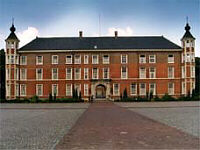
Royal Military Academy
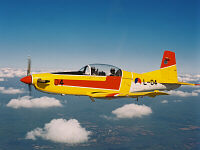
PC-7 turboprop trainer
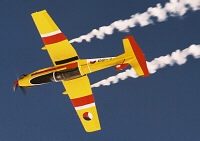
PC-7 demo team
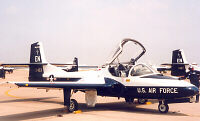
T-37 Tweet jet trainer
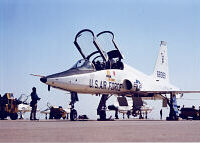
T-38 Talon advanced jet trainer
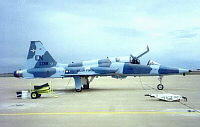
AT-38B Combat Talon
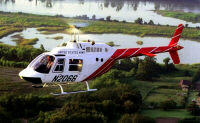
TH-67 Creek training helicopter
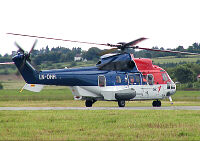
Puma training at Stavanger
|










